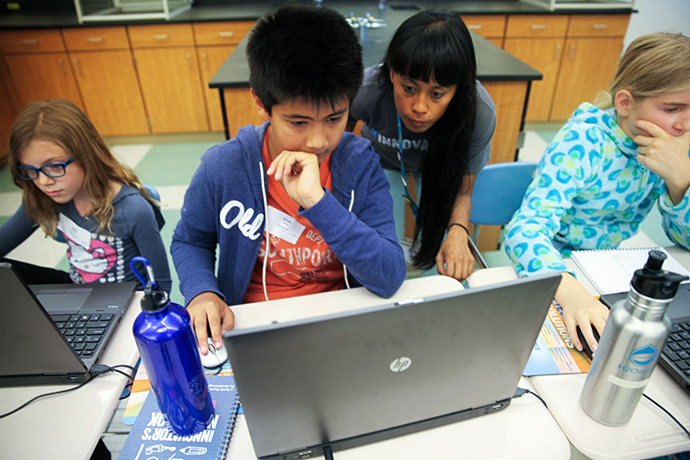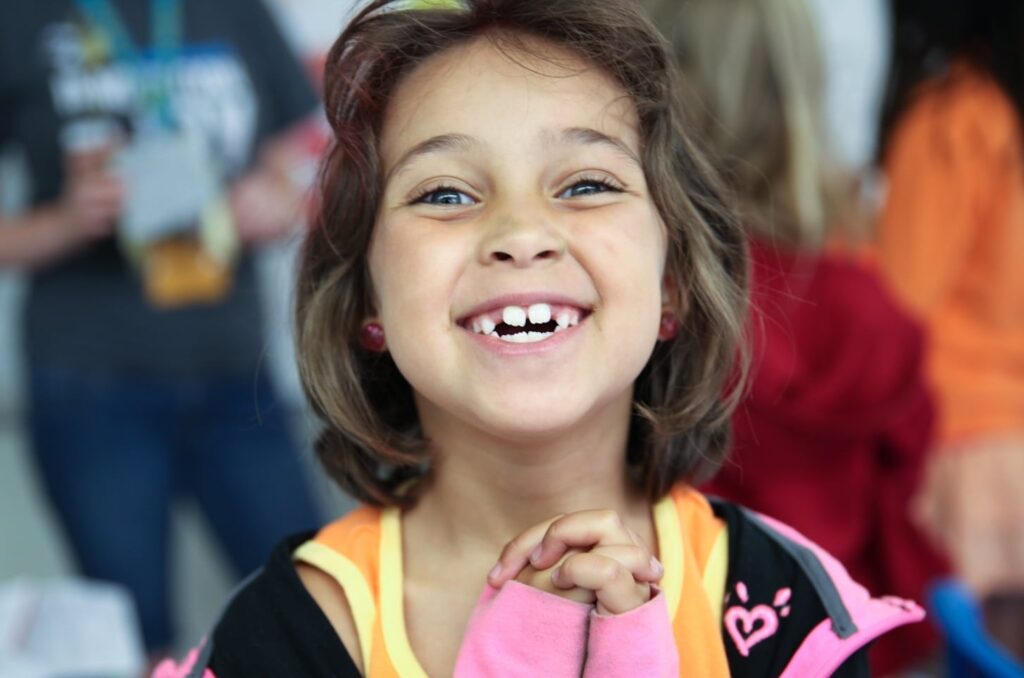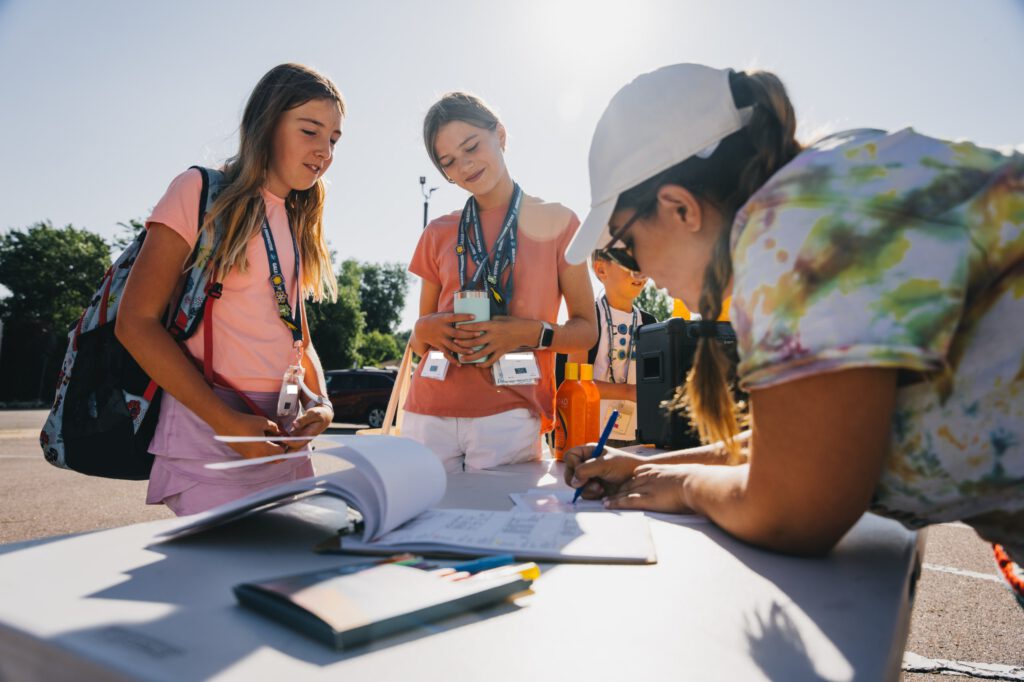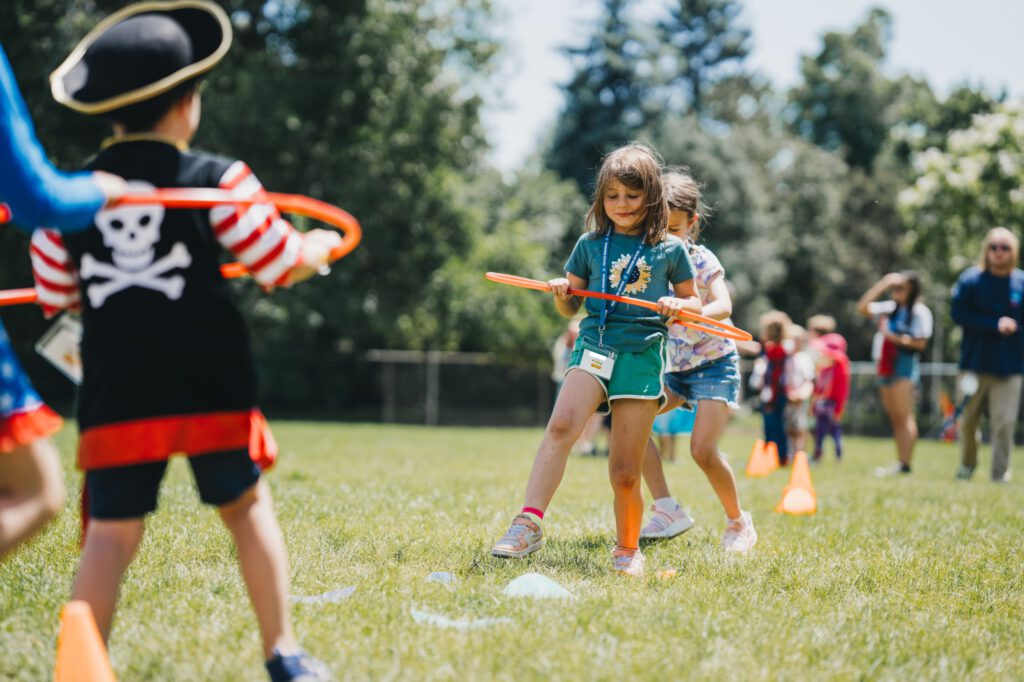Cassandra Lin was in 5th grade when she became increasingly concerned about climate change. She began to research the cause and predicted outcomes. Upon learning that the primary problem was humans’ consumption of fossil fuels, she was alarmed to consider the possibility of species extinction and the effect of rising sea levels on her small coastal town.
Rallying several friends and classmates, Cassandra and her team created Project TGIF (Turn Grease Into Fuel). Through their research, they learned that biodiesel made from used restaurant cooking oil could be recycled to heat homes. Cassandra’s passion for the environment motivated her to lead a project that would not only impact the environment but also help needy families in her town. She and her team drafted a law requiring Rhode Island businesses to recycle their grease. It took effect on Jan. 1, 2012.
Self-directed learners have their eyes on the prize. Kids who are intrinsically motivated challenge themselves to achieve. Teachers, parents and other concerned adults (camp staff, scout leaders, coaches and others in mentorship positions) play a supporting role by guiding self-directed learners along their route. On a mission to acquire knowledge and develop skills, these learners often create change by turning their passion into action.
Cassandra’s concern for the environment prompted in-depth research, experimentation, collaboration, problem-solving, innovation and leadership. Her youthful enthusiasm was uninhibited by the magnitude of the challenge at hand. Her young team succeeded where adults in the community had failed. Given support and access to resources, self-directed learners can exercise innovation and leadership as their passion projects become reality.
Supporting Self-directed Learners
Everyone goes to school to learn the basics. But with the foundation in place, self-directed learners are primed to begin building great architectural innovations. If entrusted with the confidence and support to take ownership of their learning, kids are capable of amazing things. Giving them opportunities for independent projects helps kids exercise their innovation skills—things like inspiration, curiosity and vision.
Self-directed learning is the ability to assess the demands of a situation and adapt our response and effort accordingly. It involves setting goals and then creating an action plan to achieve them. It is very much about the process, which learners travel at their own unique pace. Here are some ways to support self-directed learners:
Create opportunities
Surround the learners in your life with a wealth of opportunities to spark and develop their interests. Celebrate the seasons. Expose them to the arts, including various genres of music, dance, opera and the visual arts. Explore the outdoors: parks, zoos, farms, waterfalls, deserts. Make cultural connections by trying new foods and celebrating unfamiliar holidays. Recognize remarkable individuals and their accomplishments by following the Google Doodles.
Talk about the issues
Engage in age-appropriate conversations about current events and issues, both on the local front and globally. Allow kids to see that there are multiple perspectives and diversity in viewpoints. Help them uncover facts and support their desire to learn more.
Introduce caring adult mentors
One of the key supports for self-directed learning is a mentor. But since self-directed learners run on intrinsic motivation, the qualifications required to be a mentor are pretty basic. Adult mentors must care about and believe in their young learners. They should be willing to listen as kids bounce ideas and offer encouragement when needed. Though mentors may not have specific content knowledge, they should be generally in tune with the research and the process of finding resources.
Connect them with resources
Self-directed learners are not usually lacking in motivation, but they may quickly exceed the resources available to them at home and at school. Encouraging kids to work with friends and classmates extends their reach, as does participating in clubs, competitions and camps.
Entrust them with responsibility
Allowing kids to take some leadership with a project at home is the perfect place to start. Most projects engage a variety of coordinating disciplines. Perhaps they wish to redecorate their bedroom, engaging both their artistic and mathematical skills. Once they take measurements and choose a color palette, they can do some comparison shopping. Or perhaps they take the lead in planning a family vacation. After researching the destination, they can create a preliminary budget, weighing needs and wants. Motivation is at an all-time high when the project involves fun and is important to kids.
Preparation for Life
Motivation is strong when a project holds personal meaning to the learner. Self-directed learners can be entrusted with a great deal of responsibility, and kids of varying ability levels will benefit from taking ownership. Some will require more support: pointing them toward resources, perhaps some redirection. All will build life skills as they set goals, create a plan, solve problems and reflect on their progress.
With the proper support, kids can exercise originality, practice visualization and explore until their heart’s content. The independent learning skills they develop and intrinsic motivation they cultivate serve as strong preparation for high school, college, and learning for life.
Undertaking Special Projects
Galileo’s programs immerse self-directed learners in a safe, friendly environment where curiosity is expected, creativity is encouraged and mistakes are not only welcomed but celebrated. In each case, dedicated and knowledgeable camp staff provide just the right amount of guidance.
Opportunities for innovation and leadership abound. Campers bounce ideas off of peers with shared interests, have friends test their prototypes and get genuine feedback from other innovators in a similar frame of mind. As kids share their ideas and gather feedback, they refine their projects. They also get to offer support to their peers who are on their own creative journeys at camp. Each weekly session ends with an opportunity to present their projects and reflect back on the entire learning process.



